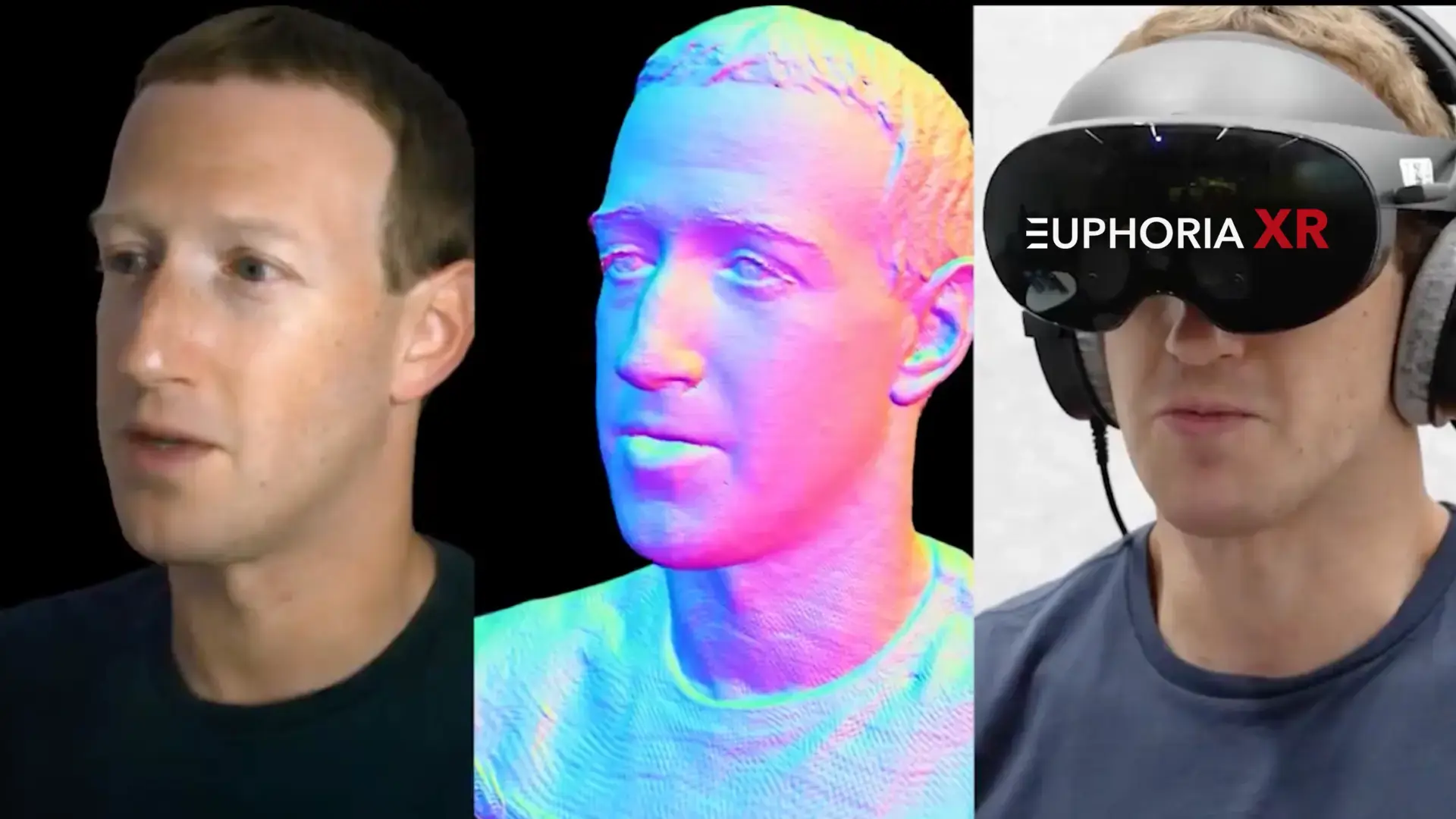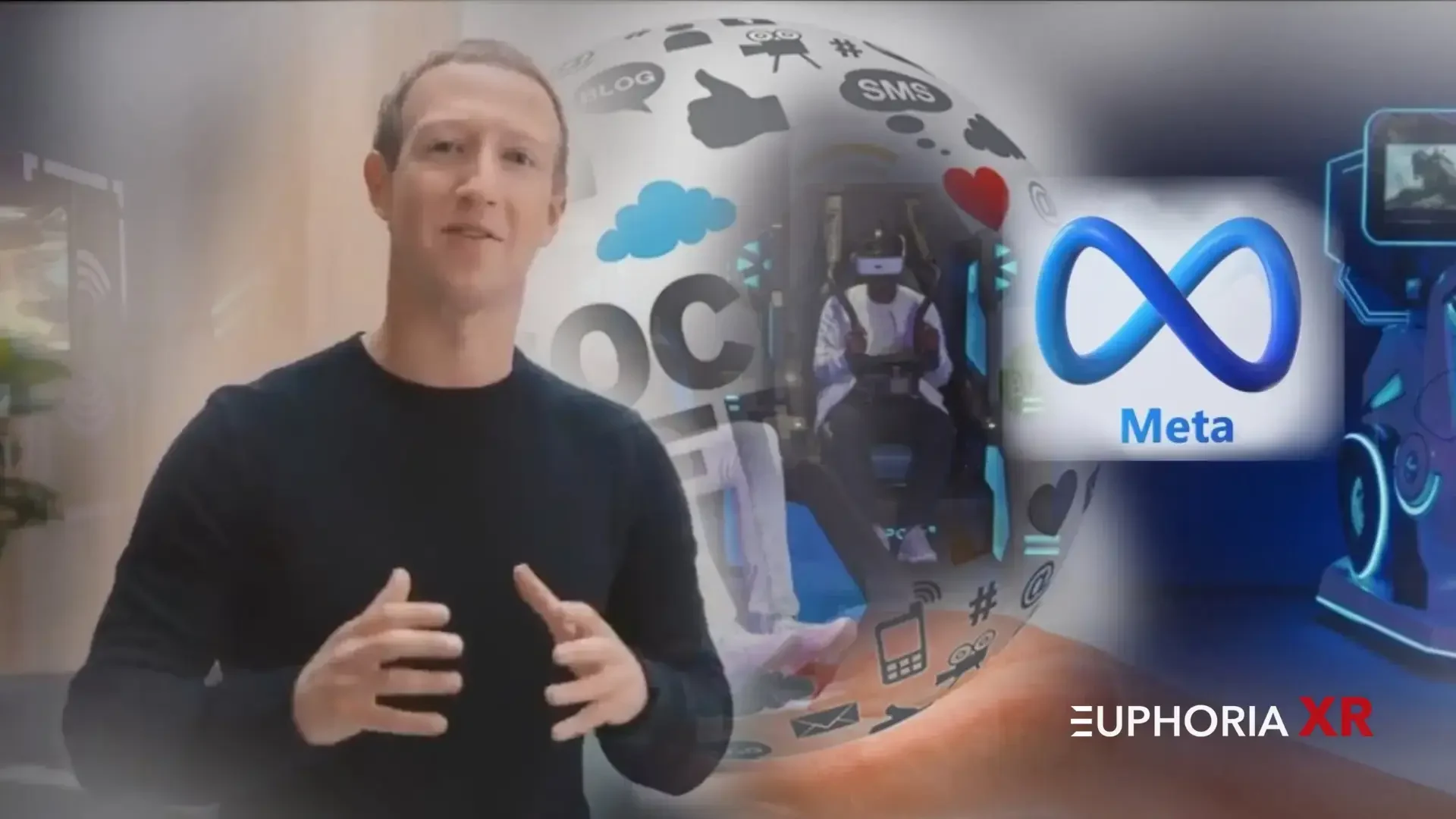Over the past few years, Mark Zuckerberg, CEO of Meta (formerly Facebook), has taken a significant turn in his vision for the company’s future. Initially, his grand focus was building the Metaverse—a fully immersive virtual environment where users could interact in real-time through avatars. However, a significant change has occurred as artificial intelligence (AI) has now taken center stage. This Metaverse to AI shift demonstrates a major correction in Meta’s strategy and highlights where Zuckerberg sees the company heading in the next decade.
What is AI?
Artificial intelligence describes systems or devices replicating human cognitive functions, such as learning and problem-solving. These machines learn from data, identify patterns, and make decisions with minimal human intervention. AI technology can be found in everything from speech recognition tools to advanced machine learning algorithms. It has the potential to automate complex tasks, enhance user experiences, and drive business innovation across industries.
What is the Metaverse?
The Metaverse is an interconnected virtual universe where people can interact digitally through virtual reality (VR) and augmented reality (AR) technologies. It is meant to be a space where users socialize, work, play, and create, blending the physical and digital worlds into one immersive experience. However, despite its potential, the Metaverse has faced hurdles in adoption, primarily due to technological limitations and the public’s readiness for such a futuristic vision.
Build Your Metaverse with Us!
Step into the future with our expert metaverse development company. Are you ready to turn your digital ideas into reality?
The Initial Rise of the Metaverse
In 2021, when Meta (then Facebook) rebranded, it promoted the Metaverse as the future of the internet. Zuckerberg envisioned a world where users could socialize, play games, work, and attend meetings—all in a virtual space. He invested billions into VR and AR technologies to make this idea a reality. The idea was ambitious, and many people were excited about the possibilities.
However, the reality of the Metaverse hasn’t met these expectations. Virtual Reality Headsets like the Meta Quest series have progressed but are still far from mainstream. VR devices are niche products compared to smartphones and computers, and creating a fully integrated virtual world is more challenging than anticipated. The technology and infrastructure required to support a truly immersive digital space are still far off, causing the Metaverse vision to stall.
Zuckerberg’s AI Strategy: The New Priority
In contrast to the Metaverse’s struggles, Zuckerberg’s AI strategy has taken off with significant momentum. Zuckerberg quickly recognized the power of artificial intelligence to transform industries and enhance Meta’s core offerings. Meta has already been developing AI technologies but has recently seen a heightened focus on this area.
In 2024, the artificial intelligence market surpassed $184 billion, marking a significant increase of almost $50 billion from the previous year. The market is expected to maintain its strong growth trajectory, with estimates suggesting it could surpass $826 billion by 2030.
Zuckerberg’s AI focus goes beyond simple tools—representing a large-scale shift. Meta is ramping up its AI initiatives to remain competitive with other tech giants like Google, Microsoft, and OpenAI. Recent developments in Meta’s AI models, such as its open-source LLaMA models, underscore the company’s commitment to harnessing AI for tangible real-world applications.
While the Metaverse was a long-term, high-risk vision, AI offers immediate and practical benefits. From improving personalized content on social media to revolutionizing customer service, artificial intelligence can enhance Meta’s existing platforms and create new growth opportunities. Whether through recommendation algorithms, content moderation, or automation, AI is already a cornerstone of Meta’s operations.

AI vs Metaverse: Why AI is Winning
The shift from the Metaverse to AI was likely influenced by the more immediate results AI offers. The AI vs. Metaverse debate wasn’t just about ambition—it was about practical outcomes. AI is here, and its impact can already be seen across multiple industries, from healthcare to advertising.
AI fits Meta’s current ecosystem perfectly. Whether through Facebook, Instagram, or WhatsApp, AI-driven algorithms can optimize advertising, content creation, and user engagement. These systems help boost Meta’s revenue by improving user experiences and targeting ads more effectively. In comparison, the Metaverse required a huge behavioral shift from users—something that takes much more time and effort to accomplish on a broad scale.
Additionally, AI supports Meta’s existing business models, enhancing them without requiring drastic changes. By integrating AI technologies, Meta can optimize its operations, generate more revenue, and streamline existing platforms. On the other hand, the Metaverse would require entirely new infrastructure, increasing the risks and uncertainties associated with its development.
Transform Your Business With AI
Expand your business with our customized AI development services tailored to your needs. From streamlining tasks to uncovering valuable insights, our AI solutions are built to boost productivity and support your business’s growth. Ready to explore smarter solutions? Click here to learn more.
The Metaverse Isn’t Gone—Just on Hold
While it may seem that the Metaverse has been sidelined, it’s important to remember that the project isn’t dead—it’s simply taking a backseat. Zuckerberg has made it clear that the Metaverse is still a long-term goal for Meta, but for now, Zuckerberg’s AI strategy takes precedence.
McKinsey & Company predicts significant expansion, projecting the metaverse economy could reach $5 trillion by 2030. The company highlights that investments in the metaverse soared to over $120 billion in 2022, more than twice the $57 billion invested in 2021.
Interestingly, AI could be a key factor in bringing the Metaverse to life in the future. AI technologies can generate realistic virtual environments, develop intelligent avatars, and improve the interactivity of virtual worlds. As AI continues to mature, these advancements could accelerate the development of the Metaverse, making it a more viable and immersive experience for users.
Concluding Thoughts!
Mark Zuckerberg’s pivot from the Metaverse to AI marks a significant change in Meta’s long-term strategy. As AI continues to revolutionize industries, Meta’s focus on Zuckerberg’s AI strategy places the company in a strong position to stay relevant and competitive. While the Metaverse may not be entirely abandoned, AI is now the driving force behind Meta’s growth and innovation.
With AI offering immediate benefits and massive potential for future growth, it’s no surprise that Meta has decided to focus on artificial intelligence. Although the Metaverse may resurface down the line, for now, Zuckerberg’s AI focus is clear—artificial intelligence is the priority for Meta’s next chapter.














